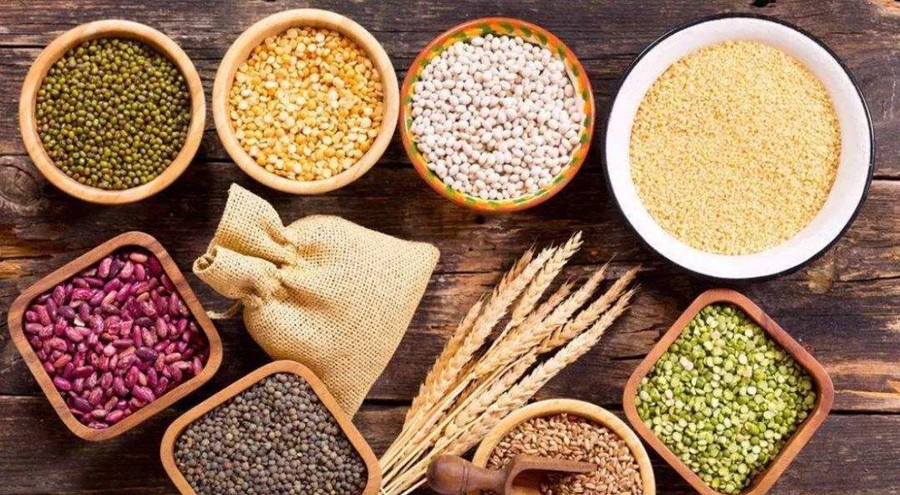The top 6 best plant protein
Although animal protein still accounts for the main share of the whole protein market, many consumers prefer to choose plant-based protein because of the growth of the vegetarian population, the high nutritional value of plant protein and the popularity of the environmental protection concept. In recent years, six emerging plant proteins, including oats, mung beans, chickpeas, lentils, flaxseed, and sunflower seeds, have become hot spots in vegetable protein drinks. According to Innova, the use of plant-based protein ingredients in food and beverage applications increased globally in 2018 compared to 2017, with the number of new product launches containing plant-based protein ingredients increasing by 16%. Of all new food and beverage releases tracked in 2018, the top five applications of plant protein ingredients were soy protein, soy protein isolate, pea protein, wheat protein, and soy protein hydrolysates.
Oat protein
Oats have high protein content and amino acids, containing essential amino acids, are a kind of high-quality nutritional protein. Compared with major cereals, oats couscous has a relatively high protein content (15-20%), high protein digestibility (90.3%-94.2%), biological value (74.5%-79.6%) and net protein utilization (69.1%-72.4%) isolated from oats. Oat protein efficiency ratio (2.25%-2.38%) was similar to the casein efficiency ratio (2.5). Oat milk is creamy, non-dairy vegetable milk that has a similar texture and consistency to cow’s milk.
Lentil protein
Lentil seeds contain about 25% protein, 0.7% fat, 60% carbohydrate and a variety of vitamins and minerals. Lentils are not only high in protein, they are also rich in soluble fiber, which lowers cholesterol. They have twice as much iron as other legumes and are high in B vitamins and folic acid. The pigment in the dark lentils also has antioxidant properties, which may protect against heart disease and cancer and fight to age. Lentil milk, which is similar in color to regular milk and contains high-quality protein and minerals while free of allergens, has had a growing market over the years.
Mung bean protein
Mung beans are rich in protein, averaging 24.1%, making them a good source of plant protein. In addition, Mung beans are low-fat and low in cholesterol, which makes them attractive to people who suffer from allergies to soy. Mung beans also have high amounts of B vitamins and can be eaten raw in salads or sandwiches. But, because of their high protein content, soy may be a better choice for those who have a food allergy. Its low-fat content makes it a great option for people with such conditions.
Chickpea protein
Chickpeas are a good source of folic acid, potassium, magnesium, phosphorus, zinc, copper and vitamin B1. They also contain some amounts of niacin, vitamin B6, pantothenic acid, calcium, and fiber. Chickpeas in the blood, calcium and other aspects of the obvious effect, diabetes, hypertension is the best food. Chickpea isolates are not only high in protein but also have a highly soluble and neutral taste, making them an excellent choice for dairy products that meet consumers’ requirements for high nutrition, taste, color and texture. In addition, chickpea allergy is extremely rare compared to plant protein sources such as milk, soy, and nuts, and chickpea protein is non-genetically modified and does not contain phytoestrogens.
Flaxseed protein
Flaxseed kernel contains abundant flaxseed protein. Compared with soybean protein, flaxseed protein contains more isoleucine, valine and other branched amino acids. Branched-chain amino acids are the most effective nutritional supplements, helping to prevent protein breakdown and muscle loss.
Sunflower seed protein
Sunflower seed protein contains lower lysine and higher methionine, nutrition can be enhanced with other plant proteins can be combined. Add sunflower seed protein to sausage and other meat products, the shrinkage is small when smoking, not only can prevent oil separation, less weight loss, but also can increase the tenderness of sausage, making the products more rich and good taste. Adding sunflower seed histone (30%) to fillings such as pasta instead of pork reduces animal fat and cholesterol. In addition, sunflower seed protein has a soft smell and no bean smell. It is a good raw material for advanced drinks and artificial milk.
Riotto botanical co., ltd. is a professional manufacturer and supplier of plant extract and nutritional ingredients from China and has been in this field for more than 11 years. If you are looking for a reliable plant protein extract powder supplier, you have come to the right place, please contact [email protected] for further discussion.



